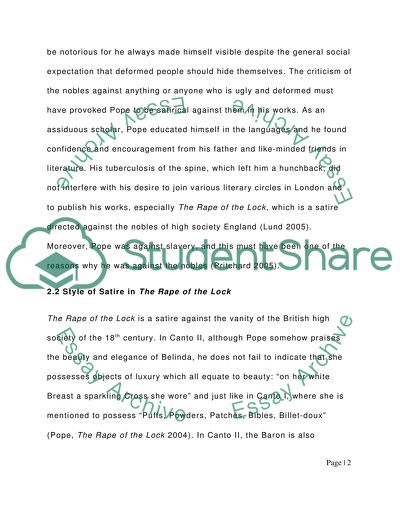Cite this document
(“18th century Satire in British Literature Particularly in Alexander Essay”, n.d.)
Retrieved from https://studentshare.org/literature/1466659-18th-century-satire-in-british-literature-particularly-in-alexander-popes-the-rape-of-the-lock-and-jonathan-swifts-gullivers-travels
Retrieved from https://studentshare.org/literature/1466659-18th-century-satire-in-british-literature-particularly-in-alexander-popes-the-rape-of-the-lock-and-jonathan-swifts-gullivers-travels
(18th Century Satire in British Literature Particularly in Alexander Essay)
https://studentshare.org/literature/1466659-18th-century-satire-in-british-literature-particularly-in-alexander-popes-the-rape-of-the-lock-and-jonathan-swifts-gullivers-travels.
https://studentshare.org/literature/1466659-18th-century-satire-in-british-literature-particularly-in-alexander-popes-the-rape-of-the-lock-and-jonathan-swifts-gullivers-travels.
“18th Century Satire in British Literature Particularly in Alexander Essay”, n.d. https://studentshare.org/literature/1466659-18th-century-satire-in-british-literature-particularly-in-alexander-popes-the-rape-of-the-lock-and-jonathan-swifts-gullivers-travels.


